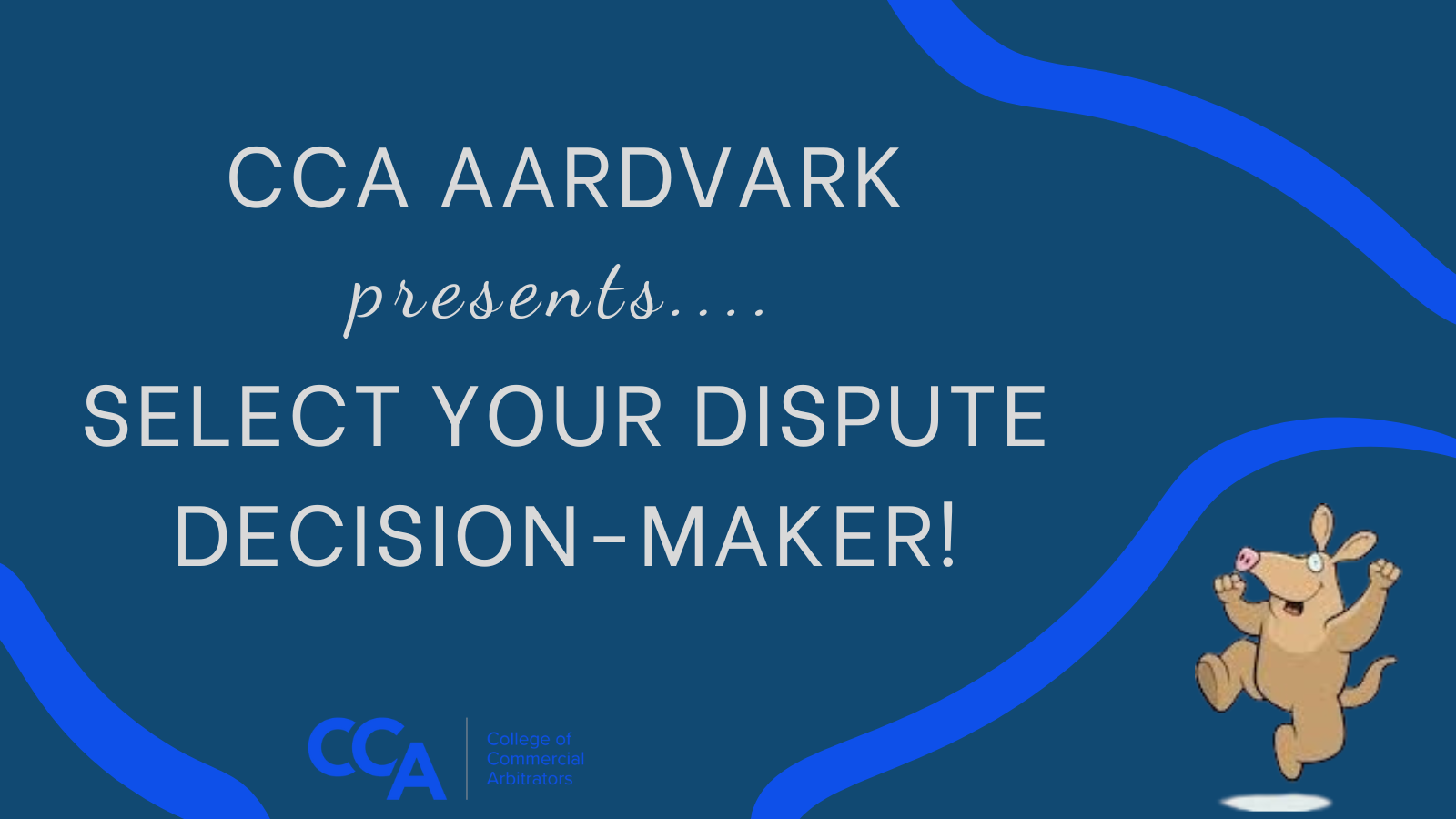Select Your Dispute Decision-Maker!


A CCA Blog: The Aardvark*
By Neal M. Eiseman, President, College of Commercial Arbitrators
& Richard H. Silberberg, Past President, College of Commercial Arbitrators
Commercial arbitration offers disputants distinct advantages that are not available in court. The principal one is party autonomy and self-determination. Nothing illustrates that concept better than the disputants’ ability in commercial arbitration to select the person who will hear and decide their dispute.
Litigants who resort to the courts for dispute resolution cannot select the judge who will hear the action. Judges are generally randomly selected upon the filing of the case. Some court rules permit parties to strike the assigned judge if they feel that judge is not suitable for some reason. But exercising that right is a risky proposition because the parties may conclude that the newly-assigned judge is even less suitable than the one who was stricken. And in those courts whose rules allow a peremptory strike, you only get one.
By contrast, parties who agree to arbitrate their dispute can vet potential arbitrators and select the one arbitrator (or three if a panel is mandated or preferred) who the parties believe is best equipped to understand, analyze, and decide the matter. In court, judge shopping is anathema. But in arbitration, vetting potential arbitrators is not only expected but encouraged.
Upon request, institutional providers will provide the disputants with access to detailed CVs of potential arbitrators on their rosters. Those CVs provide a wealth of information concerning the arbitrators’ educational and employment background, as well as subject matter and industry experience. Some CVs are accompanied by a short video presentation in which the arbitrator addresses his or her style and approaches to important aspects of the arbitration process, such as pre-hearing discovery and dispositive motion practice. And the potential arbitrators’ CVs are just a starting point.
Due diligence during the arbitrator selection process also typically includes (1) reviewing the websites, publications and speaking engagements of arbitrator candidates; (2) conferring with colleagues who are familiar with the candidates, the scope and depth of their experience, and their reputations; (3) speaking to attorneys who appeared before the candidates in other arbitration proceedings; and (4) obtaining written disclosures detailing the candidates’ existing and previous contacts with the parties, their counsel, and potential witnesses to preclude disqualifying conflicts of interest. If desired, once the parties agree upon the finalists, their counsel can jointly interview those candidates about their approaches to the arbitral process.
Taking ownership of the dispute resolution process by participating in the selection of the decision-maker is simply not possible in court. The value to the parties and their counsel of being able to participate in that selection cannot be overstated.
*We are using the Aardvark moniker to denote our CCA Blog. The Aardvark will provide content from time to time about cases, developments and issues associated with the practice of Arbitration. We hope you will find the blog entries interesting and useful. We encourage you to watch for the Aardvark and its arbitration content that we hope you will enjoy.